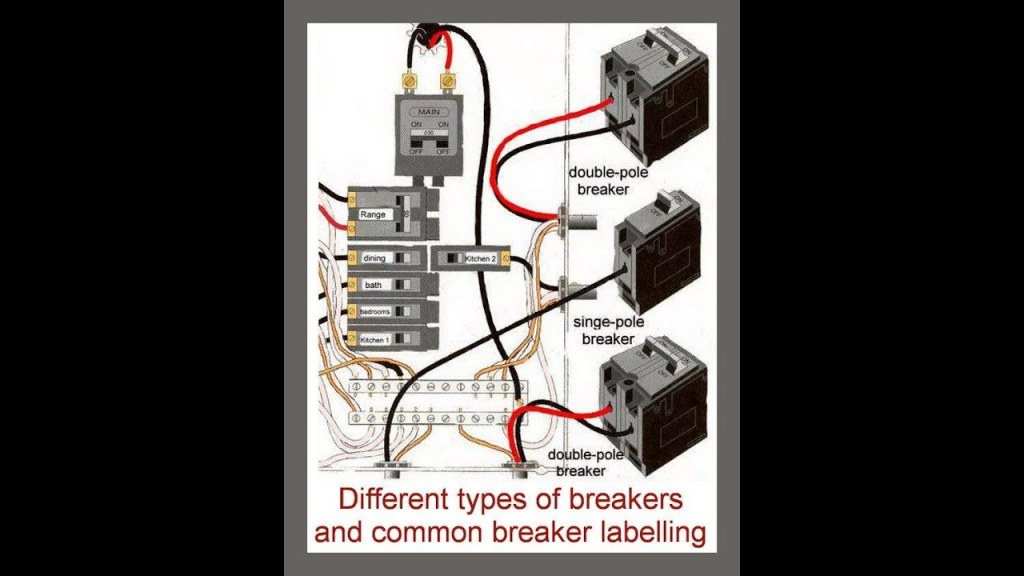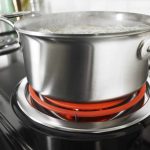Stop The Breaker Tripping! Uncover The Solution To Your Electric Furnace Troubles
Electric Furnace Keeps Tripping Breaker
Greetings, Smart Readers! Today, we will discuss a common issue that many homeowners face – an electric furnace that keeps tripping the breaker. This problem can be frustrating and inconvenient, but with the right knowledge and troubleshooting steps, you can resolve it efficiently. In this article, we will delve into the causes of this issue, the possible solutions, and the advantages and disadvantages of electric furnaces. So, let’s dive in!
Introduction
Electric furnaces are a popular choice for heating homes because of their efficiency and reliability. However, when your electric furnace repeatedly trips the breaker, it can be a sign of an underlying problem that needs to be addressed. This issue can disrupt your comfort and potentially lead to damage to the furnace or electrical system. In this section, we will explore the common causes of an electric furnace tripping the breaker and provide an overview of the solutions.
1 Picture Gallery: Stop The Breaker Tripping! Uncover The Solution To Your Electric Furnace Troubles
1. Overloaded Circuit: 👉

Image Source: ytimg.com
One of the main reasons why an electric furnace trips the breaker is an overloaded circuit. When the furnace draws too much power, it exceeds the capacity of the circuit, causing it to overload and the breaker to trip. This can happen if the furnace is sharing the circuit with other high-power appliances or if the circuit itself is not properly designed for the furnace’s power requirements. To address this issue, it is essential to ensure that the furnace has a dedicated circuit and that the circuit is able to handle the furnace’s power needs.
2. Short Circuit: ⚡
A short circuit can also cause the breaker to trip. This occurs when a hot wire comes into contact with a neutral wire or a ground wire, causing a surge of electricity and triggering the breaker. Short circuits can be caused by damaged wires, loose connections, or faulty components within the furnace. In such cases, it is crucial to inspect the electrical connections and components of the furnace to identify and repair the source of the short circuit.
3. Ground Fault: 🚧
Similar to a short circuit, a ground fault can lead to the tripping of the breaker. A ground fault occurs when a hot wire comes into contact with a ground wire or a conductive surface, diverting the current and causing an imbalance. This triggers the breaker to trip and protect against potential electrical hazards. To resolve this issue, it is necessary to inspect the wiring and grounding system of the furnace and repair any faults or damaged components.
4. Motor Issues: 🛠️
The motor of the electric furnace plays a significant role in its operation. If the motor is malfunctioning or experiencing excessive strain, it can draw more power than usual, causing the breaker to trip. Motor issues can be caused by worn-out bearings, lack of lubrication, or a faulty motor capacitor. Regular maintenance and inspection of the furnace’s motor can help prevent motor-related problems and ensure optimal performance.
5. Dirty Air Filters: 🌬️
Clogged or dirty air filters can restrict airflow in the electric furnace, leading to overheating and increased power consumption. This can cause the breaker to trip as the furnace tries to compensate for the reduced airflow. It is essential to regularly clean or replace the air filters to maintain proper airflow and prevent the furnace from overworking and tripping the breaker.
6. Electrical System Issues: 🔌
Issues within the electrical system of your home, such as outdated wiring, inadequate grounding, or faulty breakers, can also contribute to the tripping of the breaker. In these cases, it is advisable to consult a professional electrician to assess and rectify any electrical system problems that may be causing the issue.
Advantages and Disadvantages of Electric Furnaces
Now that we have discussed the common causes of an electric furnace tripping the breaker, let’s take a look at the advantages and disadvantages of electric furnaces:
1. Advantages of Electric Furnaces: ✔️
– Energy Efficiency: Electric furnaces are highly energy-efficient, converting almost all the electricity they consume into heat.
– Environmentally Friendly: Electric furnaces do not produce any emissions or combustion byproducts, making them environmentally friendly.
– Safety: Electric furnaces do not involve any combustion, reducing the risk of carbon monoxide leaks or explosions.
– Ease of Installation: Electric furnaces are generally easier to install compared to other heating systems.
2. Disadvantages of Electric Furnaces: ❌
– High Operating Costs: Electric furnaces can be more expensive to operate compared to other types of heating systems, especially in areas with high electricity rates.
– Dependent on Electricity: Electric furnaces rely solely on electricity, making them susceptible to power outages and fluctuations.
– Limited Heating Capacity: Electric furnaces may struggle to provide sufficient heat in extremely cold climates, as they may have difficulty keeping up with the demand.
– Higher Upfront Costs: Electric furnaces generally have higher upfront costs compared to other heating systems.
Frequently Asked Questions (FAQ)
1. Can I fix an overloaded circuit myself?
Yes, you can fix an overloaded circuit by redistributing the load, installing additional circuits, or upgrading the circuit to handle the furnace’s power requirements. However, it is recommended to consult a licensed electrician for proper assessment and installation.
2. How often should I clean or replace the air filters in my electric furnace?
It is recommended to clean or replace the air filters every one to three months, depending on usage and the manufacturer’s instructions. Regular maintenance helps ensure optimal performance and prevents issues like tripping breakers.
3. Are there any DIY solutions for motor-related issues?
Some motor-related issues, such as lack of lubrication, can be addressed by the homeowner. However, more complex motor issues should be handled by a professional HVAC technician to avoid further damage or safety hazards.
4. Are there any safety precautions I should take when troubleshooting my electric furnace?
When troubleshooting an electric furnace, it is crucial to turn off the power supply and follow proper safety procedures to avoid electric shock or other hazards. If you are unsure, it is best to consult a professional.
5. Should I consider replacing my electric furnace if it keeps tripping the breaker frequently?
If your electric furnace continues to trip the breaker despite troubleshooting and repairs, it may be a sign of a more significant underlying issue. In such cases, it is advisable to consult a professional HVAC technician to determine whether replacement is necessary.
Conclusion
In conclusion, if your electric furnace keeps tripping the breaker, it is essential to identify and address the underlying cause promptly. By understanding the common causes and following the appropriate troubleshooting steps, you can resolve the issue and restore the proper functioning of your electric furnace. Regular maintenance and professional inspections can help prevent future problems and ensure the optimal performance of your heating system. Remember, safety should always be a priority, so do not hesitate to seek professional assistance when needed.
Thank you for reading, Smart Readers! We hope this article has provided valuable insights and solutions for dealing with an electric furnace that keeps tripping the breaker. Stay warm and comfortable!
Disclaimer: The information provided in this article is for general informational purposes only and should not be considered as professional advice. Always consult a qualified technician or electrician for accurate diagnosis and solutions specific to your situation.
This post topic: Electric



